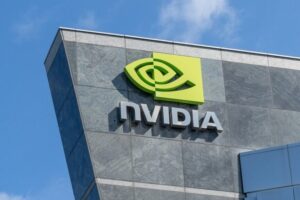Meta Introduces Llama 4, Its Latest Series of Premium AI Models

Meta Introduces New AI Models: Llama 4
Meta has recently unveiled a set of advanced AI models known as Llama 4, enhancing its existing Llama series. This announcement was made on a Saturday and includes three models: Llama 4 Scout, Llama 4 Maverick, and Llama 4 Behemoth. These models have been developed using extensive collections of unlabeled text, images, and video data, resulting in a more comprehensive visual understanding according to Meta.
The Driving Force Behind Llama 4
The development of Llama 4 was reportedly accelerated in response to the competitive performance of open-source models from the Chinese AI lab DeepSeek, which have been performing at or above the standards set by Meta’s earlier models. This shift prompted Meta to examine how DeepSeek managed to lower the costs associated with deploying such models.
- Available Models:
- Llama 4 Scout: 17 billion active parameters, suitable for simpler applications.
- Llama 4 Maverick: 400 billion total parameters, ideal for more complex tasks.
- Llama 4 Behemoth: Currently under training, boasting even greater capabilities.
Scout and Maverick are accessible on Llama.com and through partnerships with platforms like Hugging Face, while Behemoth remains forthcoming. Meta has adapted its AI assistant for various applications, including WhatsApp and Messenger, to incorporate Llama 4 technologies across 40 countries, although specific multimodal features are limited to English in the U.S. for now.
Licensing and Restrictions
Some developers have raised concerns about the licensing restrictions tied to Llama 4. Companies based in the European Union are currently prohibited from utilizing or distributing these models, likely due to strict AI regulations and data privacy laws in the region. Moreover, companies boasting over 700 million active users must secure special permission from Meta, which is granted at Meta’s discretion.
Innovative Model Architecture
Llama 4 marks a pivotal advancement as it utilizes a mixture of experts (MoE) architecture. This approach allows for more efficient processing by breaking down tasks into smaller, manageable segments handled by specialized “expert” models. For instance:
- Maverick: Comprises 400 billion parameters, with only 17 billion active parameters managed by 128 experts.
- Scout: Has 109 billion total parameters with a high capacity for handling large datasets, including a context window of up to 10 million tokens.
In practical terms, this means Scout can analyze images and extensive text, making it capable of managing voluminous documents. Scout can efficiently operate on a single Nvidia H100 GPU, whereas Maverick requires more advanced hardware.
Performance Benchmarking
International benchmarks show that Maverick excels in various categories, including creative writing, coding, and reasoning. However, while it outperforms some well-known models such as OpenAI’s GPT-4o and Google’s Gemini 2.0, it doesn’t reach the heights of the latest models like Google’s Gemini 2.5 Pro and Claude 3.7 Sonnet.
Scout, on the other hand, demonstrates strong document summarization skills and is particularly adept at handling extensive codebases, underscoring its utility for technical applications.
Behemoth’s Capabilities
The forthcoming model, Behemoth, is projected to require even more sophisticated hardware, with specifications indicating 288 billion active parameters. Initial testing suggests it outperforms several notable models in areas that require mathematical problem-solving.
Enhanced Responses and Bias Consideration
Interestingly, Meta has adjusted the Llama 4 models to handle “contentious” topics more effectively, aiming for balanced responses in politically and socially debated areas. They hope that Llama 4’s enhancements will provide factual and unbiased answers, addressing concerns about potential political biases in AI responses.
Many voices, including some allies of former President Donald Trump, have suggested that major AI models display bias against conservative viewpoints. In response, companies like OpenAI are evolving their AI systems to become more responsive on sensitive topics.
As Meta continues to innovate and expand its capabilities within the realm of AI, these Llama 4 models represent significant strides toward creating advanced and versatile AI tools.






